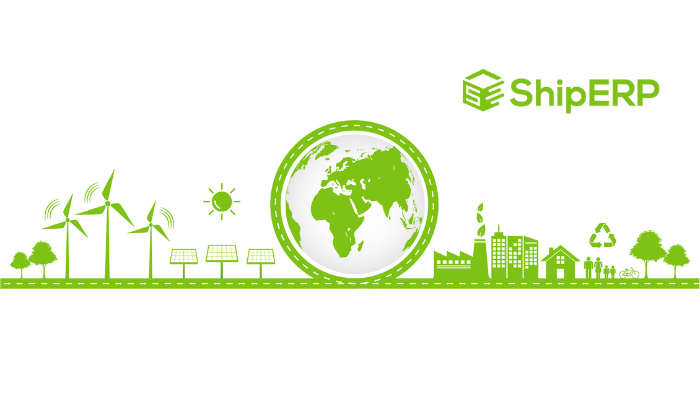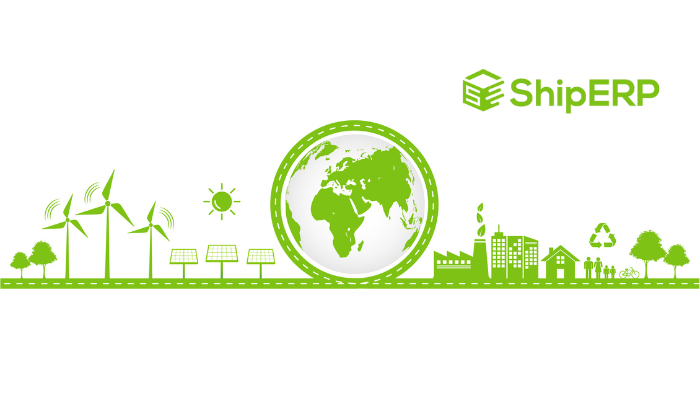
6 Enterprise Strategies for More Sustainable Supply Chain Management
In a time when environmental consciousness is simply not enough, businesses recognize the vital role of supply chain management in shaping sustainable outcomes. By definition, the global supply chain moves goods from production to consumption, and wields tremendous influence over our ecological footprint as a result. We'll explore a wide variety of strategies that companies (in virtually every sector) can adopt to champion sustainability and reduce their environmental impact!
Sustainable Supply Chain Practices:
Supplier Selection and Auditing
Prioritizing Sustainable Suppliers: Enterprises are making a significant impact by collaborating with suppliers who share their commitment to sustainability. This involves selecting partners that adhere to environmentally responsible practices and whose ethical standards align with your company's.
Supplier Auditing: Regular audits help ensure that suppliers maintain their sustainability commitments. By monitoring supplier operations and holding them accountable, businesses can create a more sustainable supply chain ecosystem.
Energy Efficiency and Renewable Energy
Reducing Energy Consumption: Emphasizing the importance of energy efficiency across the supply chain, from manufacturing to transportation, has never been more necessary! This can be achieved through measures like:
- Route optimization
- Idle time reduction
- Energy-efficient equipment adoption
Harnessing Renewable Energy: Transitioning to renewable energy sources (like solar and wind power) for supply chain operations is a sustainable choice with a growing number of options. For some larger corporations, the exploration of on-site renewable energy solutions has yielded sustainable results.
Waste Reduction and Recycling
Minimizing Waste Generation: Companies implement practices to reduce waste at all stages of the supply chain, including:
- Optimizing packaging
- Reducing excess inventory
- Implementing just-in-time inventory systems
Promoting Recycling: Encourage recycling within the supply chain and explore opportunities for closed-loop systems where products and materials are reduced, reused, and recycled.

Ethical Labor Practices
Fair Labor Conditions: Ensure that labor practices within the supply chain are ethical and fair! This includes providing safe working conditions, fair wages, and opportunities for skill development and career advancement.
Certifications and Compliance: Fair Trade Certifications can also provide third-party verification of ethical labor practices. This is particularly crucial for companies who must comply with international labor standards.
Data and Technology
Leveraging Data Analytics: Companies are increasingly using data analytics to optimize supply chain processes and workflows. Predictive analytics can help in demand forecasting, reducing waste, and even optimizing transportation routes.
Innovative Technologies: Embrace technologies like blockchain for supply chain transparency and traceability. For example, IoT devices can monitor product conditions during transit, reducing losses and waste, while machine learning and artificial intelligence can audit your parcel spend and find the best carrier rates.
Collaboration and Partnerships
Stress the importance of collaboration with non-governmental organizations (NGOs), industry groups, and other stakeholders. These partnerships can foster knowledge sharing, collective initiatives, and the development of industry-wide sustainability standards.

Sustainability Best Practices for Enterprises
Sustainable supply chain management goes beyond corporate jargon or green-washed buzzwords; it's a fundamental shift in how businesses operate. By carefully selecting responsible suppliers, improving energy efficiency, minimizing waste, ensuring ethical labor practices, and harnessing data and technology, every company--from SMB to enterprise level--can become a champion of sustainability. Collaboration with like-minded organizations and stakeholders strengthens these efforts, creating a sustainable supply chain ecosystem that benefits both businesses and the planet. Together, we can build a greener future for generations to come!
For more information about ethical and environmentally conscious supply chain technology, check out these sustainable solutions:
ShipERP Core (multi-carrier rate shopping)
ShipERP Cloud (platform agnostic multi-carrier platform)
ShipEWM (warehouse and inventory management)
SupplierPORTAL (supplier collaboration)
ShipERP Spotlight (AI/ML parcel spend auditing/management)



